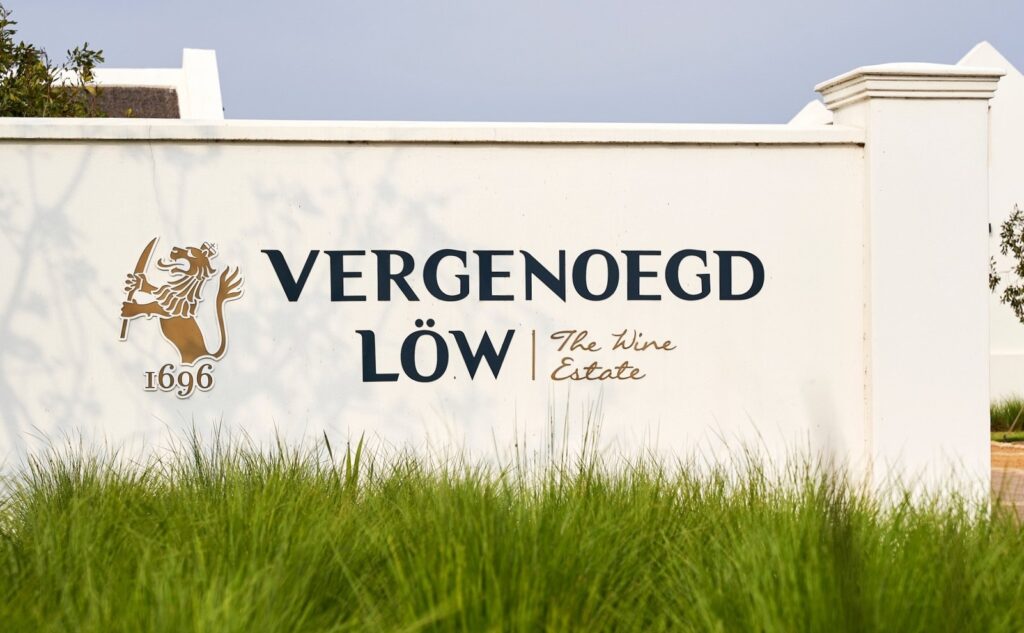Tim James: Names of people, names of places
By Tim James, 11 November 2024

1

I’ve been thinking again of the names of wines and wine places in the Cape. Names are words, and many of them rather beautiful, especially those that speak of our culture and warmly evoke its reach into the past – especially those lovely old Dutch names that we’re so lucky to have, speaking across the centuries of struggles and fears, hopes and anguishes: Allesverloren, Eenzaamheid, Buitenverwachting, Vergelegen, Lammershoek, Twee Jongegezellen, Banghoek – the list goes on, joined by French names that in turn recalled a distant homeland La Bri, La Motte, Grande Provence….
Few if any of those old places, it occurred to me, were named after the early settlers who worked them for the first time. How different now, when winery and farm names are a stake of ownership driven into the ground and maybe into history (for a while). Perhaps back then there was less individualist self-assertion, less of the arrogance of ownership and more a response to the land and to memories and hopes. I’ve written before about the names of wine-businesses, especially to “peevishly wonder if the whole ‘Family Wines’ and ‘Family Vineyards’ thing is not getting a bit excessive”. Leopard’s Leap Family Vineyards? Backsberg Family Wines? I dare say that actually most of those that refer to genuine families are drawing in grapes from much more than a single estate which might, if they’re lucky, be at the centre: A A Badenhorst Family Wines is the label, its home farm is the more charming Kalmoesfontein. But still. One of the many things I enjoy about Thelema is that the new owners in the late 1980 left the name of the farm as it was as many have done.
I was recently alerted again to differing traditions of naming wine estates when considering the role of Germans in Cape wine and noting that two German personal names had been attached to older property names: Vergenoegd is now Vergenoegd Löw, and the old Delta farm became Solms Delta (that conjunction now attached to Wine Company rather than to Wine Estate). That’s a rare move. As far as I can think now, the only other local estate name similarly constructed, with a new owner adding his own name to an established one, is Delaire Graff, where Laurence Graff renamed the property after purchasing Delaire two decades ago.
It’s hardly a new thing in land or label ownership. As here, I suspect that most wine-labels in classic Europe reflect the owner’s name (or the founder-owner’s name) rather than anything else – usually alongside the appellation, which actually probably gets more prominence. And there are certainly examples of this practice of adding a new owner’s name to an established non-familial one, especially in the grander reaches of Bordeaux. There are, for example, at least three well-known properties on the Cantenac plateau of the Médoc that distinguish themselves with the surnames of (now very much previous) owners: Brane-Cantenac, Boyd-Cantenac and Cantenac Brown.
The varied use of hyphens in that list accords with the names on the labels; there aren’t hyphens in two names reflecting rather later bordelais acquisitions by big money: Mouton Rothschild and Lafite Rothschild. But as with Delaire and Vergenoed, most probably the family name is seldom included when anyone makes casual reference to Mouton and Lafite. I fear, anyway, that most non-German-speaking users of the full version of Vergenoegd Löw (no hyphen) will take what might be a little unconscious revenge on the self-assertion of the new owner, Professor Dr Dr Peter Löw, by mispronouncing the name, ignoring the umlaut and treating it as a simple English word, rather than the good Dutch-German smash-up that should sound something like Vergenoegd-Lurhv.
We can probably be grateful, however, that the German owner of Alto and Ernie Els realised it would not really be a good idea to prefix or suffix those names with his own. Obliging a customer to request a bottle of Von Staff-Reitzenstein Ernie Els Propietor’s Syrah might be asking a bit much. The name Ernie Els is also a reminder of the ambiguities of how relentlessly time deals with well-known names. I’m hardly up to date in my knowledge of sporting achievements, but I have an idea that Ernie’s name no longer has quite the resonance it did when he acquired his farm in 2003 (spiralling through names, it was a deletion from the estate called Webersburg in honour of its owner, Fred Weber; all of it once called, rather nicely, Groenerivier). In 50- or 100-years’ time, I guess, presuming the winery called Ernie Els still exists, it’ll surely be a matter of a bit of research for anyone who wonders why it’s called that. Sic transit gloria mundi, as they say. Though wanting a monument is not a bad thing and perhaps is a testament of faith in the future as well as the present, and attaching one’s name to vineyards and wine is a pleasing way of doing it.
- Tim James is one of South Africa’s leading wine commentators, contributing to various local and international wine publications. His book Wines of South Africa – Tradition and Revolution appeared in 2013.







Gareth | 12 November 2024
Incidentally, at a recent visit to Twee Jonge Gezellen, I was surprised to learn that the lady doing our tasting wasn’t aware that the name was in fact Dutch, not Afrikaans and had hitherto wondered why many (Dutch-speaking) visitors prounounced “twee” as “tway” – rather than the Afrikaans way.